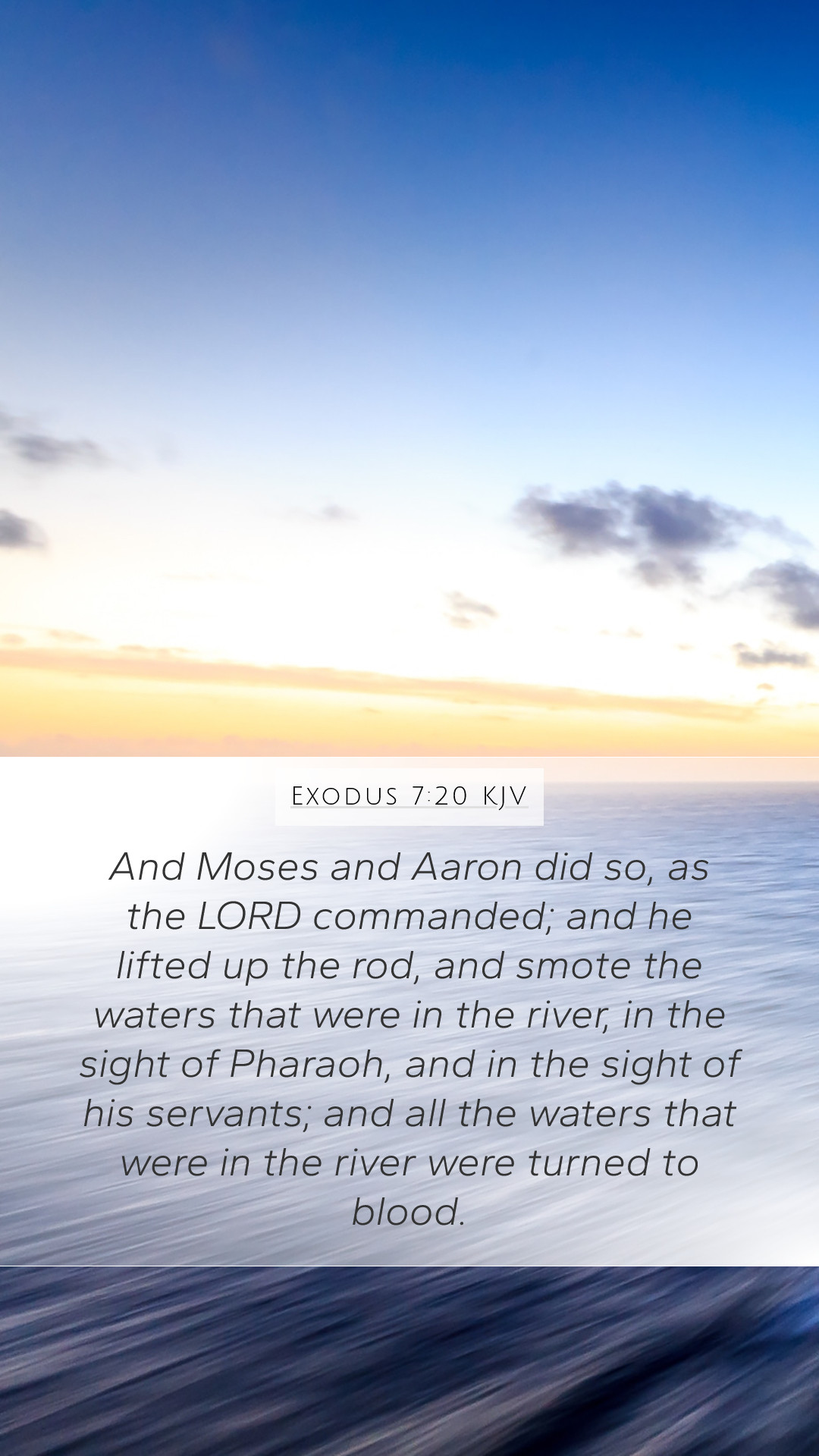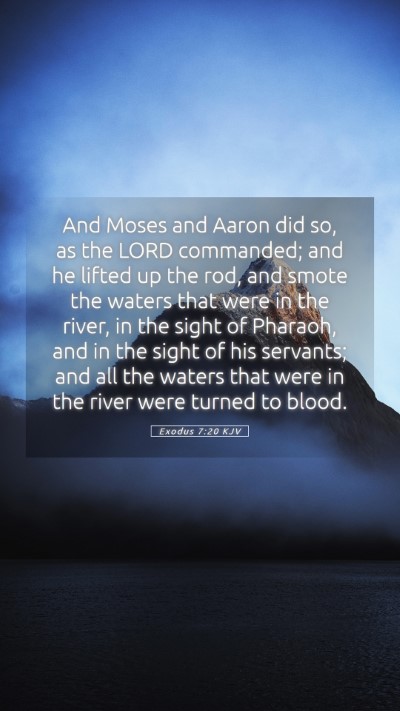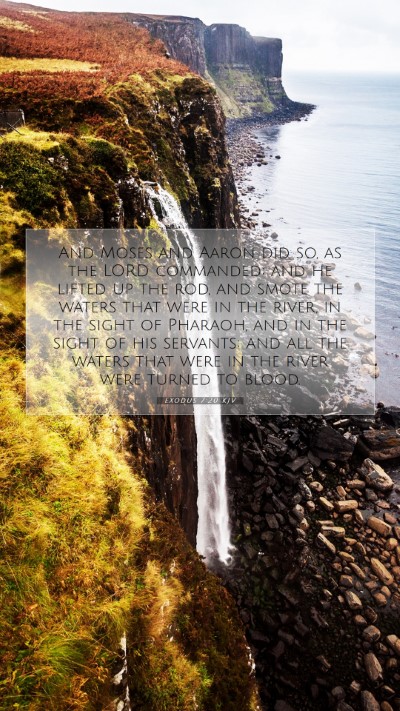Bible Verse Meaning and Commentary: Exodus 7:20
Verse: Exodus 7:20 - "And Moses and Aaron did as the Lord commanded. He lifted up the rod and struck the waters that were in the river, in the sight of Pharaoh and in the sight of his servants. And all the waters that were in the river were turned to blood."
Overview
This verse marks a significant event in the narrative of the Exodus, where Moses and Aaron perform a miracle that serves both as a sign of God's power and a fulfillment of divine prophecy. The transformation of the Nile's waters to blood serves as a crucial deliverance theme, depicting God's judgment upon Pharaoh and the Egyptians for their oppression of Israel.
Bible Verse Explanations
Understanding this verse involves examining the obedience of Moses and Aaron, the act of striking the waters, and the resultant transformation. Public domain commentaries shed light on several aspects:
- Obedience: Matthew Henry emphasizes that the obedience of Moses and Aaron to God's command demonstrates their faith and commitment to divine instruction, which is a key element in biblical character development.
- Divine Authority: Albert Barnes points out that the act showcased God's authority over nature, illustrating to Pharaoh and the Egyptians that their gods could not protect them against the God of Israel, reinforcing His supremacy.
- Symbolic Significance: Adam Clarke notes that blood often symbolizes life and judgment, suggesting that this act was both a sign of the impending judgments upon Egypt and a demonstration of the lifeblood of the Israelites being threatened under Egyptian oppression.
Bible Verse Interpretations
Many interpretations arise from this verse, particularly concerning its theological implications:
- Judgment and Deliverance: This event symbolizes God's judgment against the oppressors and His deliverance of His people. It serves as a reminder of His power to intervene in human affairs.
- Fulfillment of Prophecy: The prophecy given to Moses about the plagues is being fulfilled, showcasing God's sovereignty over history.
- Historical Context: The Nile was worshiped as a god by the Egyptians, thus turning its waters to blood was a direct challenge to their belief systems.
Bible Study Insights
In studying this verse, readers gain insights into:
- How God uses ordinary people to accomplish His extraordinary plans.
- The importance of following God's commands, regardless of the challenges posed by others.
- The nature of miracles as a means to convey divine messages during critical moments in history.
Related Scriptures for Deeper Understanding
For those seeking to expand their understanding, consider these cross-references:
- Exodus 7:14-18: The introduction of the first plague and the warnings given to Pharaoh.
- John 7:38: A metaphorical reference linking water and the blood of Christ and the new covenant.
- Revelation 16:4: A comparison of God's judgments in the future that resonate with those in Exodus.
Applying Bible Verses to Daily Life
Reflecting on Exodus 7:20 allows believers to consider how they respond to God's commands in their own lives. Key applications include:
- Trusting God's directives even when they seem daunting.
- Recognizing the power of God over all areas of life, including challenges we face.
- Understanding the broader implications of our actions and choices in the context of God's plan.
Conclusion
The deep meanings behind Exodus 7:20 call for meditation on God's faithfulness and the importance of obedience. Through this biblical exegesis, believers can gain valuable insights that enrich their personal Bible study and enhance their understanding of Scripture and its application in contemporary life.


